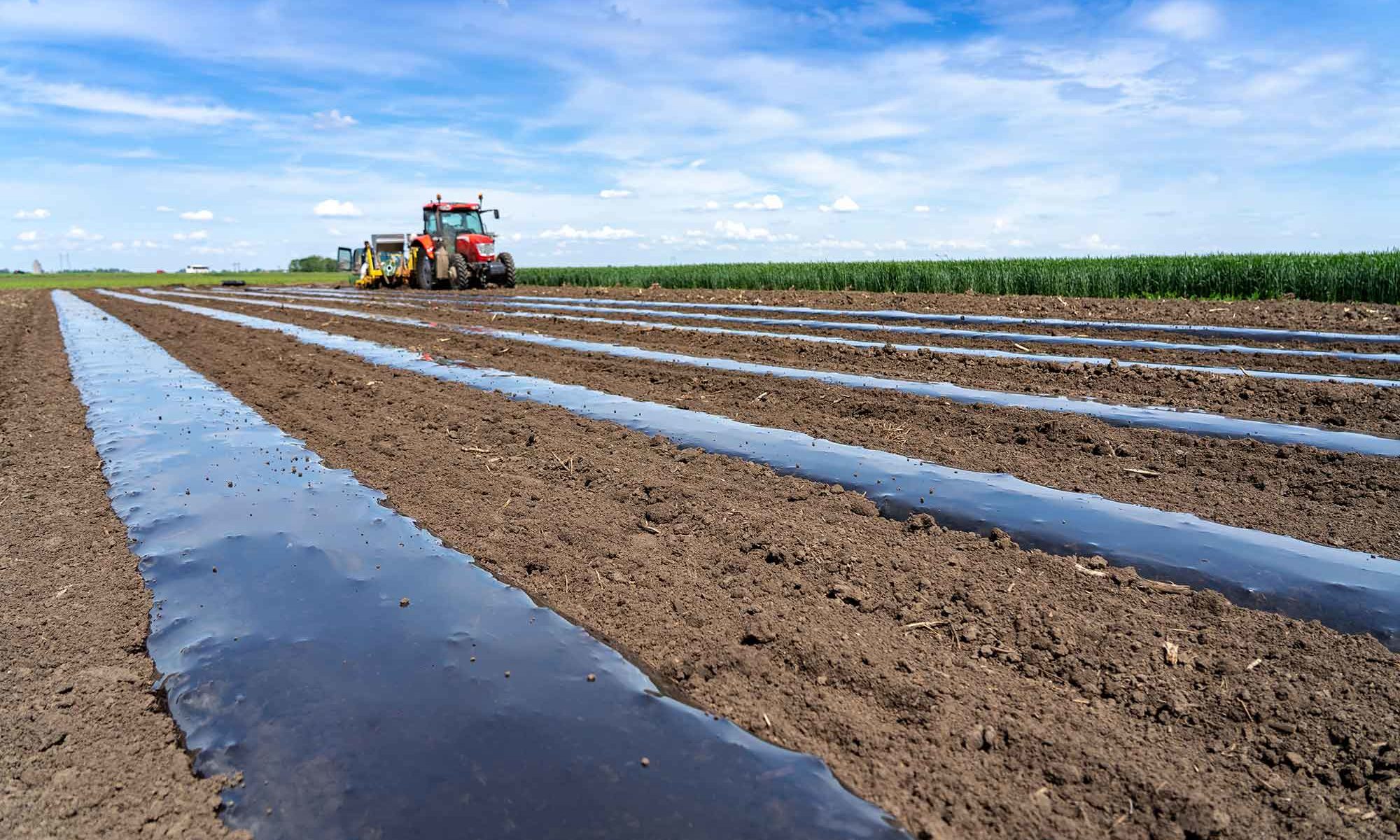The scientists analysed water and soil samples from 16 farms in Spain (Mediterranean climate) and the Netherlands (Atlantic climate). The plots and surrounding areas in both countries were found to be contaminated with 48 different types of microplastics. More than half (53%) of the plastic particles in ditches originated from biobased mulch films. In the fields, 39% of the particles found were biobased. Dutch fields and ditches were more heavily contaminated than Spanish ones, indicating that the degradation process is slower in cooler climates.
Increased use
Every year, 80 million kilos of mulch film are used in Europe, of which 5% (4 million kilos) are of the biodegradable variety. The foil is used when cultivating crops in the open field to keep soil temperature stable, prevent soil drying out and control weeds. This results in higher crop yields.
Traditional agricultural films made of fossil PE have to be removed after use, but tend to leave residues. In recent years, the use of plant-based biodegradable films has increased. They are made of, for example, starch combined with PLA and PHA. The intention is that they decompose relatively quickly in the soil. According to the international standard, 90% should decompose within two years. This does not appear to be the case. The researchers even detected particles of material that was widely used 20 years ago.
Washed away
In deposits from ditches around Dutch agricultural plots, the microplastic concentration was even found to be ‘extremely high’: 3,000 particles per gram of sediment, according to the researchers. These are possibly particles that wash away from the soil and then accumulate in the bed of ditches where they do not break down. Via the ditches, they may end up moving further in the environment and in the food chain.
The scientists conclude that more research is needed into the behaviour of bioplastics in soil. The Plastic Soup Foundation recommends using alternatives to plastics, such as paper or waste streams from wool production. Finland’s Stora Enso has been marketing mulch paper made from wood pulp for several years.
For more information and the full research report, visit the Plastic Soup Foundation’s website.
Image: RGtimeline/Shutterstock



